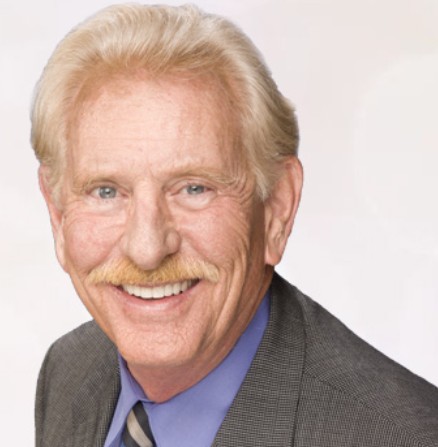Ghislaine Maxwell, Elizabeth Holmes, and Jen Shah Star in Prison Drama Nobody Asked for
The Federal Prison Camp in Bryan, Texas, was never designed to be the stage for a cultural spectacle. Yet with Ghislaine Maxwell, Elizabeth Holmes, and Jen Shah now sharing the same minimum-security facility, it’s turning into what forensic psychologist Dr. John Brady calls “a female version of Hard Knocks—but behind bars.”
Dr. John Brady, a nationally recognized forensic psychologist, is extremely familiar with all of these cases and can speak to this increasingly bizarre set of dynamics that no one could have predicted. In fact, one particular commonality Brady has studied at length is shared by Holmes and Shaw. It has to do with why hugely successful and wealthy people who are motivated to steal.
On the surface, it makes no sense to people, Brady says. “There is a reason for the behavior, and I have studied it extensively,” he said. “Throwing Ghislaine Maxwell into this mix is quite the brew.”
Psychological DNA: A Cold Case Analysis of Who Killed Robert F. Kennedy
Pre-Order Brady’s new Book Breakdown: A Criminal Analysis of Lee Harvey Oswald and Sirhan Siran
Recent reports suggest that prison officials have quietly warned inmates to stay silent about Maxwell. That messaging, subtle but unmistakable, sends a signal: she’s off-limits. Yet inside a facility where many inmates are not hardened criminals—and some even go home on weekends—the dynamics grow exponentially more complicated. What they see and hear about Maxwell doesn’t stay in prison. It follows them outside, where conversations inevitably leak. What exactly are they saying? What information is being suppressed—or whispered about—in hushed tones?
The resentment is real, too. Inmates reportedly bristle at Maxwell’s presence. For women working through their own sentences, her reputation as Epstein’s right hand is a disruptive force, distorting relationships, alliances, and even safety perceptions. Add Holmes’ “disgraced genius” label and Shah’s reality-TV notoriety, and suddenly Bryan is home to three different types of infamy—all colliding in one confined space.
Dr. Brady, a forensic psychologist who has studied inmate behavior, power dynamics, and institutional responses to high-profile offenders, can unpack these layers. He can explain how prison staff navigate the psychological tightrope of managing celebrities in custody, what “radioactive” figures do to inmate hierarchies, and why silence can be as dangerous as open hostility.
For audiences, this isn’t just voyeurism. It’s a live case study in human psychology under pressure:
- How does jealousy, anger, or misplaced fascination affect inmates’ behavior toward Maxwell?
- What does “keeping quiet” do to group trust and cohesion in a prison setting?
- And most importantly, how does a minimum-security prison—which thrives on routine and compliance—cope when its culture is shaken by figures who draw global attention?
Dr. Brady’s expertise makes him the perfect voice to contextualize these developments beyond the tabloid headlines. He can break down how celebrity inmates alter the psychological fabric of correctional life—and why Bryan, Texas, may now be America’s most fascinating laboratory for observing it.
Relevant Article(s):
We don’t want ‘disgusting’ sex traffickers in our prison, say Ghislaine Maxwell’s fellow inmates
OPTIONAL Q&A
- What psychological dynamics come into play when three high-profile inmates like Ghislaine Maxwell, Elizabeth Holmes, and Jen Shah are housed in the same prison?
- How does the reported directive for inmates to “stay quiet” about Ghislaine Maxwell affect the mental climate and trust inside the facility?
- What kinds of resentment or jealousy can emerge among inmates when one prisoner, like Maxwell, attracts outsized attention or special treatment?
- How does it change prison culture when some inmates, unlike Maxwell, are allowed to go home occasionally and then return?
- Inmates talk when they go home—how might this fuel rumors, misinformation, or outside influence about what really goes on behind prison walls?
- What coping mechanisms do lower-profile inmates use when forced to coexist with infamous figures like Maxwell, Holmes, and Shah?
- From a psychological standpoint, what risks exist when silence or secrecy is enforced in a prison population?
- Could this mix of notoriety, silence, and simmering tensions lead to larger disruptions or long-term mental health challenges inside Bryan?
ABOUT DR. JOHN BRADY…
Dr. John Brady is a forensic psychologist who for 25 years has spent hours analyzing why individuals commit heinous crimes, providing testimony in numerous criminal cases, and writing six books taken directly from his professional clinical work and court records.
Having worked with some of the nation’s top defense attorneys, prosecutors, private investigators, judges and even perpetrators themselves, Dr. Brady holds that powerbrokers in some of the most prosperous communities often work to hide the evil lurking within some of the biggest work hubs, endangering the public by withholding information.
Dr. Brady, who has written about why wealthy women shoplift to why individuals commit horrific mass-murders, can explain the step-by-step journey taken in the perpetrators’ unconscious journey into darkness.
“It is possible to learn to identify the hidden reasons for crime,” said Dr. Brady, “to understand what leads an individual to the breaking point.”
Whether such behaviors can be attributed to depression, to over-medication with anti-psychotic drugs, or to disorders such as dissociative identity disorder, Dr. Brady can discuss why the criminal is often caught in their own trap.
Books by Dr. Brady include:
PSYCHOLOGICAL DNA: A Cold Case Analysis of Who Killed Robert F. Kennedy
Men of steal: A brief look at the psychology of Celebrity Theft
Why Rich Women Shoplift
Klepto-Bismo: Big Pharma, Shoplifting and Psychiatric Deception
Caught in a Trap
Treat Me: Help for Behavioral Addictions
To schedule an interview, contact Bookings@Specialguests.com or call 512-966-0983


